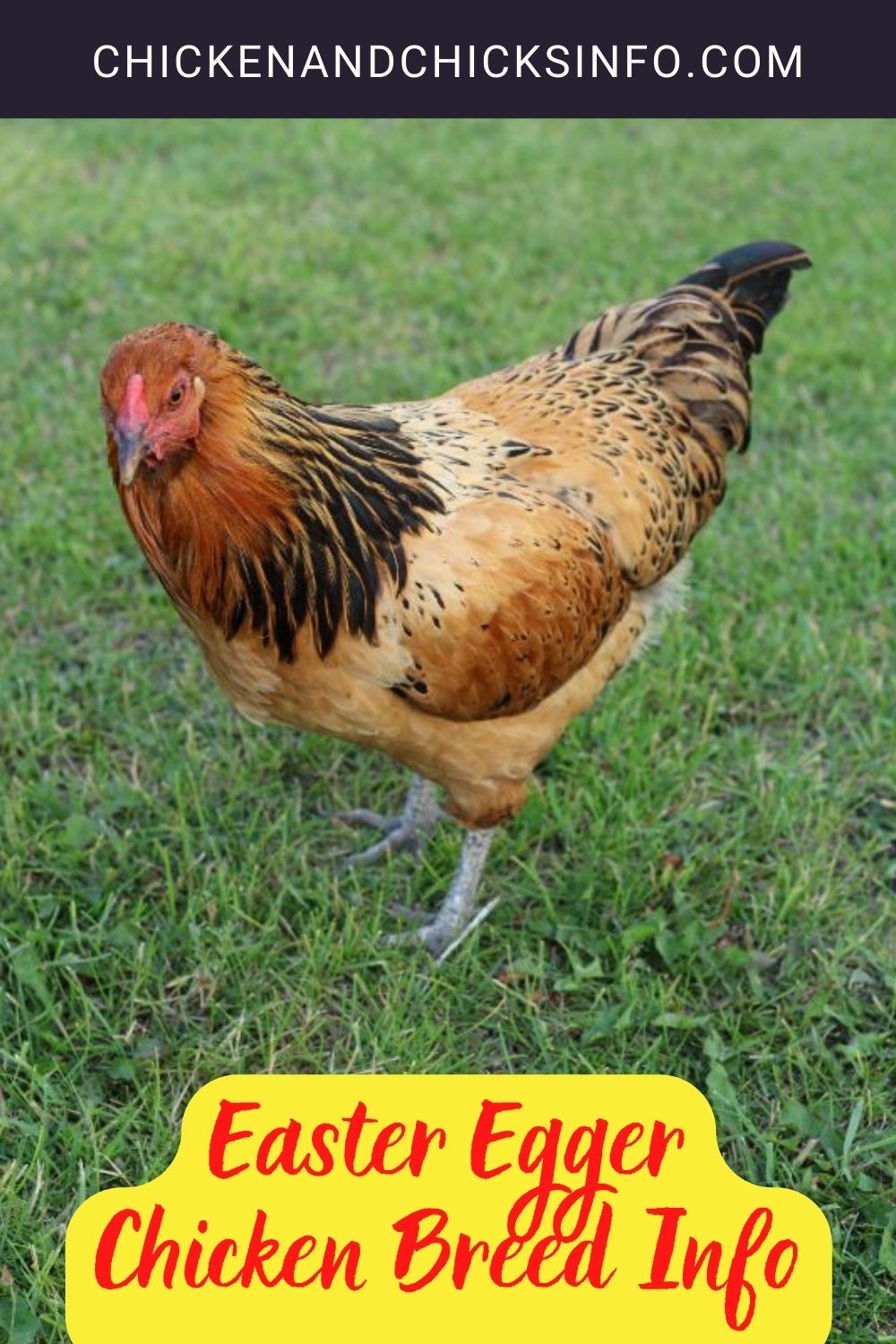The Easter Egger is an egg-laying breed that is popular with backyard chicken owners. They are esteemed for their colorful eggs and easygoing personalities.
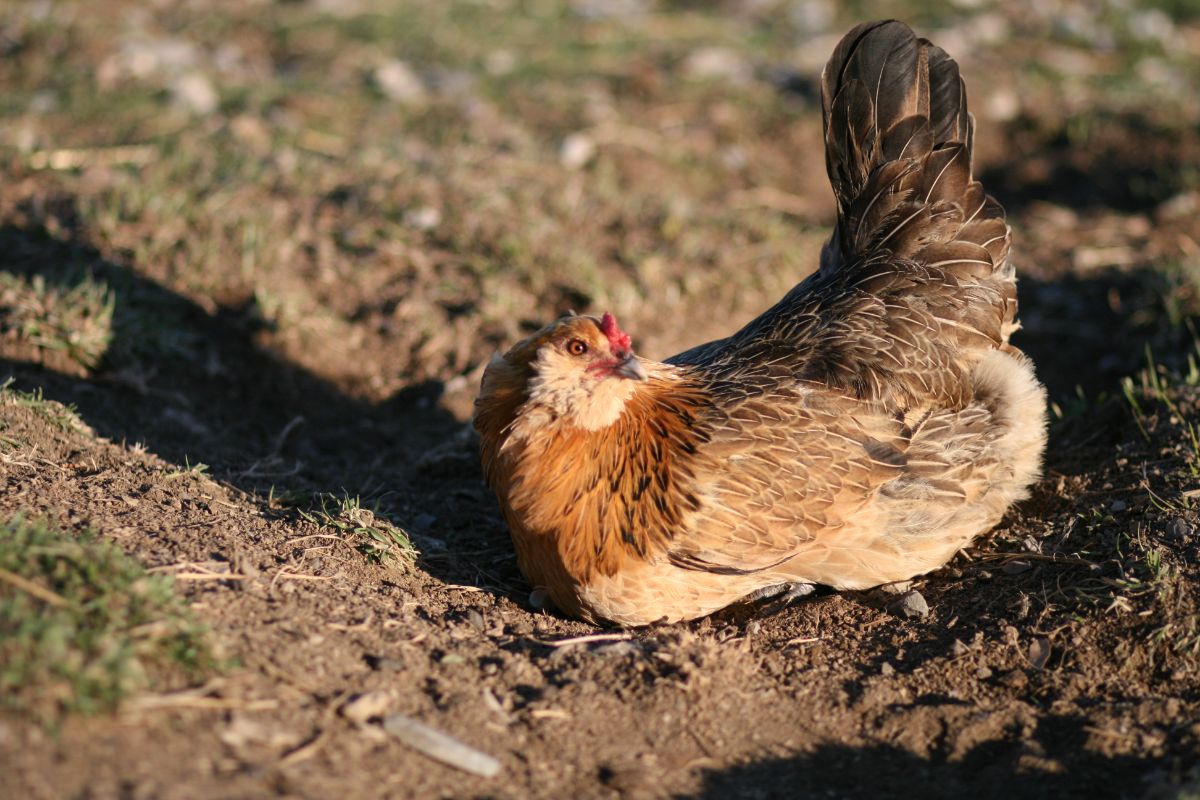
Easter Eggers are hybrids and can come from several different breed crosses. Because of this, their feather colors and patterns and eggshell colors vary greatly. However, they do share some similarities with each other: they tend to be muffed and bearded and usually have a pea-comb with a small or absent wattle.
Easter Eggers are bred to have colorful egg shells and a high rate of production. They are famous for their variety of shell colors - ranging from light blue to mint green to pale pink. Because each hen produces a different colored egg, they each have a unique feather color and pattern as well.
Jump to:
How to Buy Online Easter Egger Chickens

Easter Egger Chicks As low as: $2.75 - Read reviews
Easter Egger Bantam Chicks As low as: $4.60 - Read reviews
Easter Egger Hatching Eggs As low as: $3.84 - Read reviews
Easter Egger Started Pullets As low as: $125.00 - Read reviews
Easter Egger Chicken Breed Quick Info
Easter Egger Chicken Description
| Easter Egger Type/Size: | Standard |
| Feather Color: | Variety of colors and patterns |
| Leg Type: | Clean |
| Leg Color: | Varies, usually greenish |
| Skin Color: | Varies, usually dark |
| Easter Egger Ease of Raising/Keeping: | Easy |
| Easter Egger Special Care Needs: | No |
| Is the Easter Egger breed a common, rare, or protected breed of chicken? | Common |
Easter Egger Use
| Meat | No |
| Eggs | Yes |
| Dual Purpose | No |
| Easter Egger Temperament: | Friendly, mild-tempered |
| Easter Egger Ability/Likelihood to Free Range: | Yes |
Easter Egger Egg Production
| Egg Color | Green, blue, brown, pink |
| Egg Size | Medium-Large |
| Estimated Number of Eggs Per Year | 200-280 |
| Likeliness to Brood Eggs/Raise Chicks | Low |
Easter Egger Meat Production
| Dressed Weight Male | N/A |
| Dressed Weight Female | N/A |
Easter Egger Climate Tolerance
| Heat | Good |
| Cold | Excellent |
Easter Egger Age to Maturity
| Number of Months to Reach Full Size | 6 Months |
| Number of Months to Start Egg Laying | 5 Months |
| Number of Weeks/Months to Reach Meat Harvest Size | N/A |
Easter Egger Size at Maturity
| Male | 5 lbs. |
| Female | 4 lbs. |
Origins of the Easter Egger Chicken
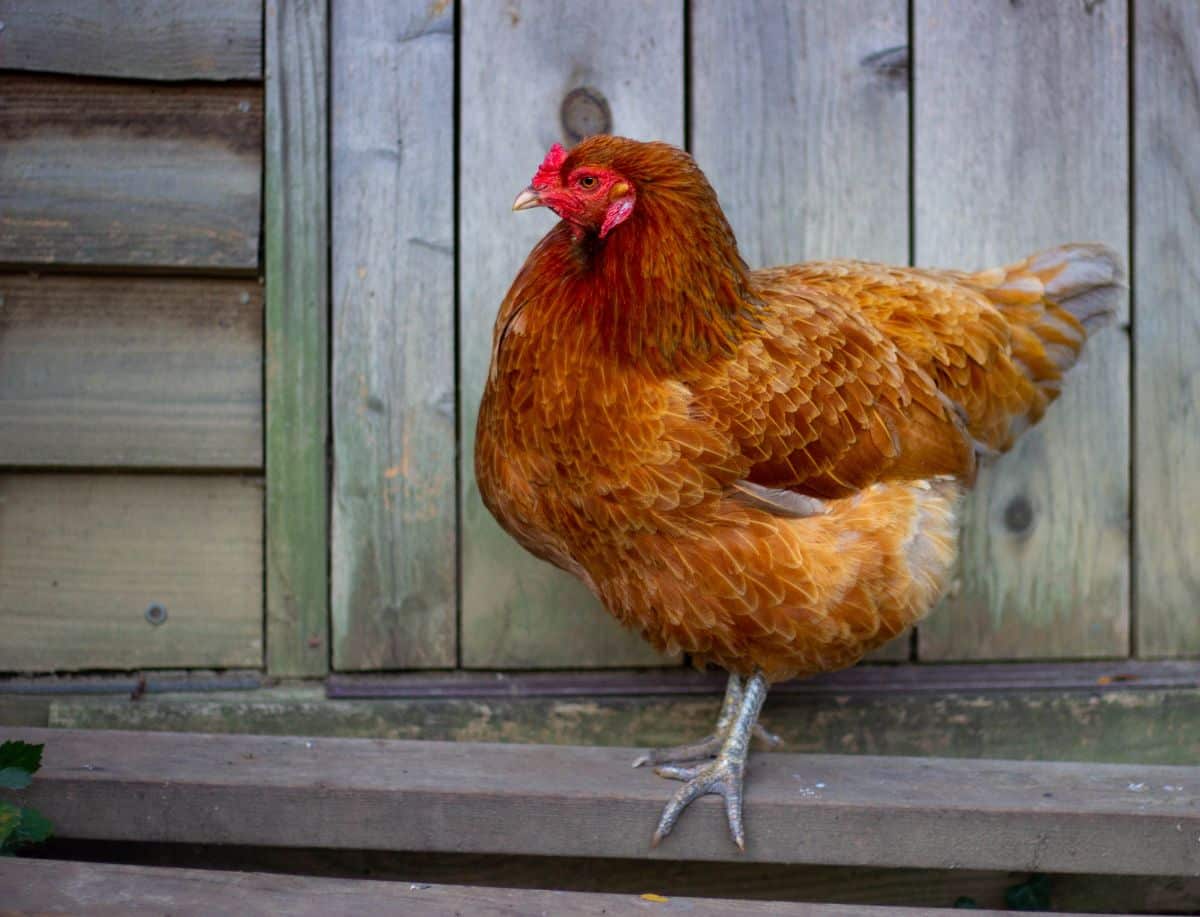
Easter Eggers are considered to be hybrids or crossbreeds, as they are a cross between chickens carrying the blue-egg gene and the brown-egg gene. These are often the Araucana or Ameraucana breeds, which are popular for their colorful blue/green eggs. Although these breeds come from as far away as South America, the Easter Egger has been bred and developed in the United States.
Some Things to Know About the Easter Egger Chicken
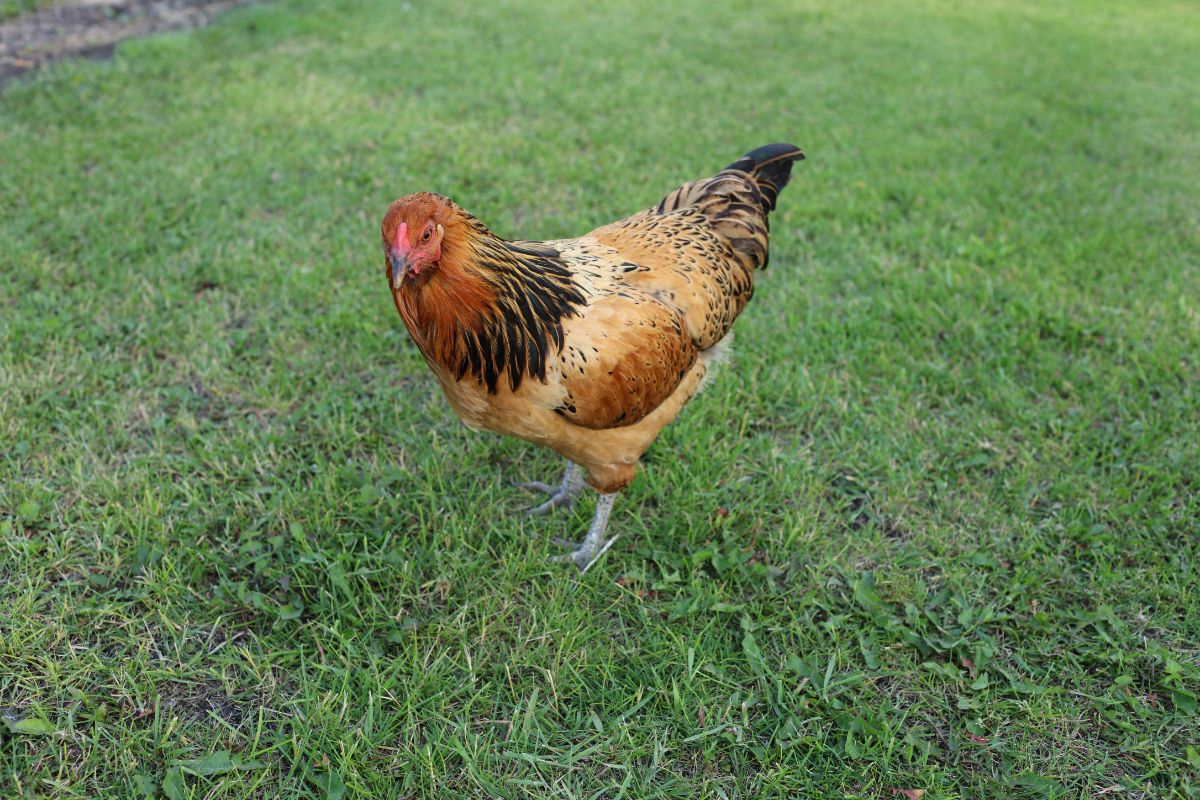
This breed is known for its colorful eggs. In fact, this is what made them one of the most popular breeds in the chicken-keeping world right now.
With a coop full of easter egger hens, you are guaranteed to get a basket full of rainbow-colored eggs every morning. Their beautiful shells range from aqua blue to teal green to light brown and pale pink.
If you’re looking to add a splash of color to your brown or white egg layers, this is the perfect breed to add to your henhouse.
How Easy is it to Keep Easter Egger Chickens?
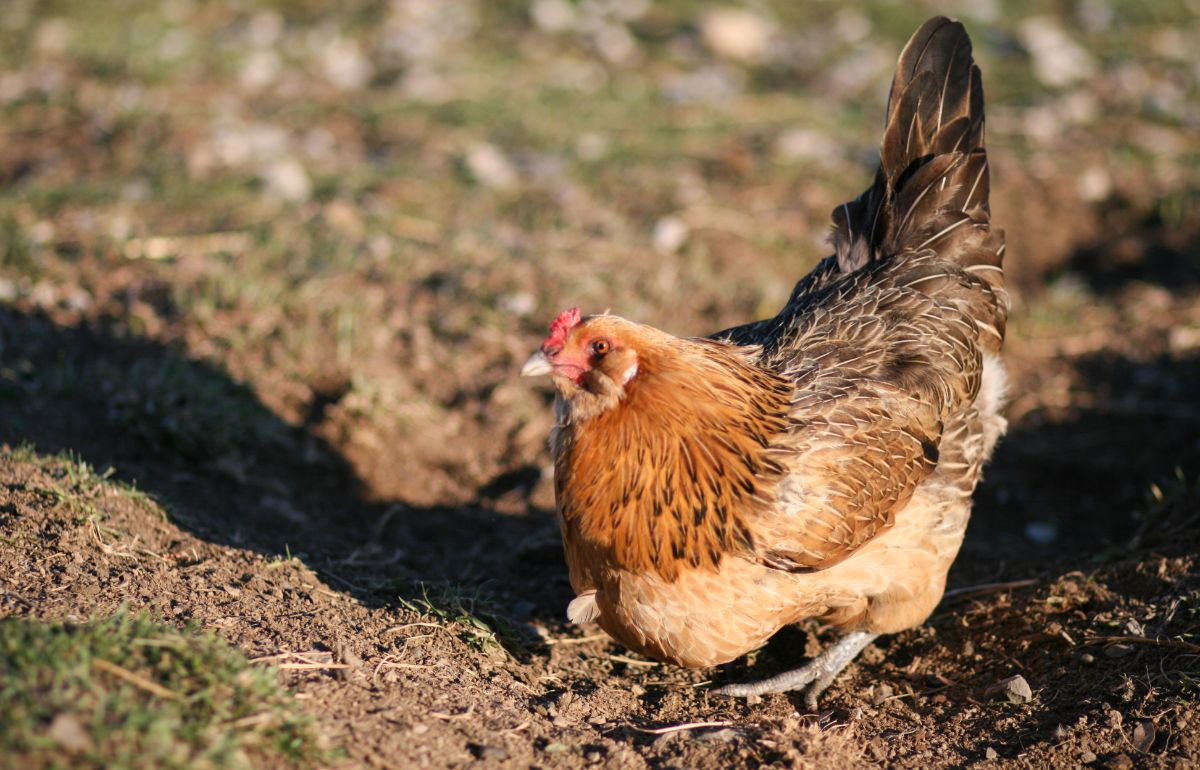
Easter Eggers are a great breed for first-time chicken owners, as they are easy to care for and have a friendly temperament. They are mild-mannered and are rarely afraid of their handlers, which makes them easy to work with.
They are cold hardy, and do well in the heat, so they are ideal for most climates. However, like with all breeds, make sure to take measures against extreme temperatures and weather.
Special Care and Considerations for Easter Egger Chickens
Easter Eggers are easy-to-care-for birds that are great for beginners and experienced chicken owners alike. This, along with their colorful egg production and bright personality, is a great reason to add them to your coop.
The only thing you should avoid is pairing this breed with aggressive or pushy chicken breeds. Due to their friendly nature, they are subject to being pushed around when in a group living situation with breeds or individual hens that are known to be bullies. Keep an eye out, and don’t be afraid to separate your Easter Eggers if you notice fighting within your flock.
